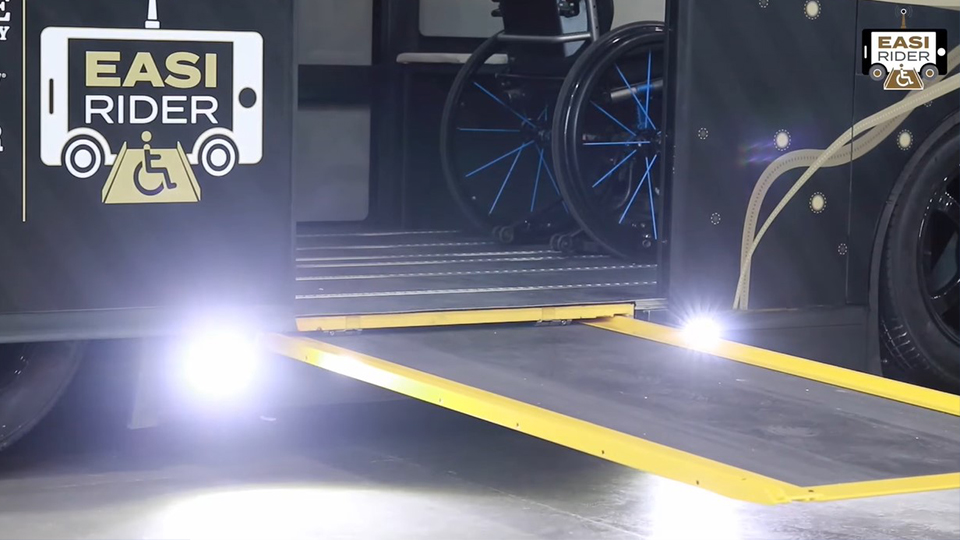BraunAbility celebrates 50 years, Inclusive Design Challenge win
Subscriber Benefit
As a subscriber you can listen to articles at work, in the car, or while you work out. Subscribe NowA global mobility vehicle company with roots in the Pulaski County town of Winamac is marking two big milestones. Carmel-based BraunAbility is currently celebrating its 50th anniversary by building 50 ADA-accessible wheelchair ramps for individuals who otherwise do not have a safe way to get out of their homes. Additionally, the company took home the $1 million prize in last week’s Inclusive Design Challenge from the U.S. Department of Transportation for a project conducted in partnership with Purdue University.
In an interview with Business of Health Reporter Kylie Veleta, Senior Brand Manager Megan Wegner said the company wanted to celebrate its anniversary by giving back to the community.
“We partnered with this amazing organization based in Indiana. They’re called SAWs, and they build ramps free of charge for low-income Hoosiers and help them safely get out of their homes,” she said. “Obviously, the products that we build help our customers and their families discover the world around them outside of their homes. But they’re useless, really, if you’re trapped inside your own home. So we thought this is a perfect way to give back to our communities and also ground our employees in our mission and the people who were helping every day.”
The ramps are being built not just in Indiana, but other communities where BraunAbility owns retail locations.
The USDOT awarded the $1 million first prize from the Inclusive Design Challenge last Tuesday on the 32nd anniversary of the Americans with Disabilities Act. The challenge was designed to find “innovative designs to enhance mobility options for people with physical, sensory, and cognitive disabilities and to provide equal access to automated vehicles.”
BraunAbility and Purdue University won with its project, EASI RIDER, or Efficienct, Accessible and Safe Interaction in a Real Integrated Design Environment for Riders with disabilities.
It features and automated vehicle with universal design features for people with physical and sensory disabilities. Includes a “Smart Ramp” that automatically deploys, an automated wheelchair docking system, and an on-board user interface.
“We focused on individuals with mobility or visual impairments, and that makes up about 60% of the travel limiting disability population because they both have difficulty physically interacting with technologies, with devices and instruments,” said Brad Duerstock, professor of engineering practice at Purdue.
BraunAbility says the EASI RIDER assists users in locating an automated vehicle, boarding and exiting the vehicle, securing themselves and their mobility aids, and interacting with the vehicle via touch screen and voice control.

“That $1 million will go to funding that research and development,” Wegner said. “We’re definitely focused on electric vehicles and our eyes are definitely on autonomous travel to that can be a real game changer for people with disabilities.”
You can learn more about EASI RIDER by clicking here.
BraunAbility was founded in Winamac in 1972 by Ralph Braun, who was diagnosed with muscular dystrophy at the age of six and spent most of his life in a wheelchair. He and his father designed the first motorized scooter, and he later renovated a postal Jeep with hand controls and a hydraulic lift, which led to the company’s creation.
The company has grown to more than 1,200 employees serving more than 70 countries, according its website. While the BraunAbility headquarters are located in Carmel, the company still has a manufacturing presence in Winamac.
